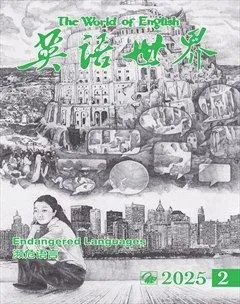Is Your Makeup Harming Your Fertility?化妝品危害生育嗎?
We are all aware of the nasties in our food and environment that can have an impact on fertility. Health speaks with Dr. Pankaj Shrivastav, a pioneer in the field of Reproductive Medi-cine, to learn more about the potential harm that these seemingly innocuous products can have on our fertility.
眾所周知,食物和環境中的有害物質會影響生育能力。《健康》雜志采訪了生殖醫學領域的先驅潘卡杰·什里瓦斯塔夫博士,以了解看似無害的化妝品可能會對生育能力造成什么危害。
Endocrine disruptor chemicals1
內分泌干擾物
It is no secret that cosmetics and beauty products are full of chemicals. Studies show that products such as nail polish, perfumes, antibacterial soaps, antiaging creams, and more, have high chemical content that contains endocrine disruptor chemicals, tells Dr. Shrivastav. “One such group of chemicals that are phthalates, a group of non-persistent chemicals that are used in a variety of consumer products across the globe,” he explains. “The high molecular weight Bis (2-ethylhexyl) phthalate or DEHP is used to add flexibility to polyvinyl chloride and other plastics products. Low molecular weight phthalates such as Di-butyl phthalate (DBP) and diethyl phthalate (DEP) are used as solvents in personal care products to hold color and scent.” Women of reproductive age have a specific exposure risk profile to DBP which is commonly used in nail polishes.
化妝品和美容產品含有很多化學物質,這已經不是什么秘密。什里瓦斯塔夫博士說,有研究表明指甲油、香水、抗菌肥皂、抗衰老面霜等產品中的化學成分含量很高,其中就有內分泌干擾物。他解釋說:“鄰苯二甲酸鹽就是一類內分泌干擾物。這類化學物質不穩定,但在全球各種消費品中都有應用。高分子量的鄰苯二甲酸二(2-乙基己基)酯(或稱DEHP)可用于增加聚氯乙烯等塑料制品的柔韌性。低分子量的鄰苯二甲酸鹽,比如鄰苯二甲酸二丁酯(DBP)和鄰苯二甲酸二乙酯(DEP),則用作個人護理產品的溶劑,以保持顏色和氣味。”前者通常用于指甲油,育齡婦女與其接觸是有風險的。
The impact
負面影響
Globally, more than 18 billion pounds of phthalates are used each year, primarily as plasticizers to create flexibility in plastics. According to Dr. Shrivastav, these chemicals can be found in cosmetic products such as lotions, perfumes, and nail polishes. He elaborates, “Select phthalate metabolites have been associated with decreased sperm concentration and motility, and increased sperm DNA damage. Interestingly, phthalates have also been demonstrated to reduce fertility with decreased pregnancy rates, increased miscarriages, and other gestational complications.” Moreover, it has been demonstrated that these plasticizers negatively modulate oocyte growth, ovulation, and embryonic development, leading to impaired ovarian function. Interference with ovarian steroid synthesis and metabolism could partially explain these effects.
全球每年使用超過180億磅的鄰苯二甲酸鹽,主要用作增塑劑,以增強塑料的柔韌性。根據什里瓦斯塔夫博士的說法,鄰苯二甲酸鹽可以在乳液、香水和指甲油等化妝品中找到。他詳細闡述道:“鄰苯二甲酸鹽的部分代謝產物與精子濃度和活力降低、精子DNA損傷增加有關。值得一提的是,鄰苯二甲酸鹽經證實還會降低受孕率,提高流產以及其他妊娠期并發癥的發生率,最終導致生育率降低。”此外,已有證據表明這類增塑劑會對卵母細胞生長、排卵和胚胎發育產生負面影響,進而導致卵巢功能受損。產生這一系列負面影響的部分原因在于卵巢類固醇的合成和代謝受到干擾。
Awareness is key
提高意識是關鍵
So what do we do? How do we even begin to protect ourselves and our future generations from items that have become an intrinsic part of daily use and selfcare? “The first step is always awareness,” says Dr. Shrivastav. “This is why scientific research and development is so vital and it is imperative that we as med-ical physicians take this kind of know-ledge to the public and make them aware of potential environmental dangers.” He advises that when it comes to plastic, avoid their use as much as possible. When it comes to cosmetics, flip the label and read the ingredients. When you see phthalate listed as an ingredient—don’t buy it. There are many certified organic products and companies available; however, it is imperative to do your research before you make your purchase.
那么我們該怎么做?有些化妝品已成日常必備和個人護理標配,我們要從何開始保護自己和后代免受其害?什里瓦斯塔夫博士說:“第一步始終是提高意識。這就是為什么科學研發如此重要。作為醫生,我們必須向公眾傳播這類知識,讓他們意識到潛在的環境危險。”說到塑料制品,他建議盡可能避免使用。至于化妝品,要翻看標簽上的成分表。如果看到表中列有鄰苯二甲酸鹽,那就不要購買。市面上有許多經過認證的有機產品和品牌可供選擇,但購買之前,務必細致研究。
(譯者單位:上海電子信息職業技術學院)
1內分泌干擾物是環境中存在的能干擾人類或動物內分泌系統諸環節并導致異常效應的物質,并不直接作為有毒物質給生物體帶來異常影響,而是類似雌激素對生物體起作用,通過攝入、積累等各種途徑,即使攝入量極少,也能導致生物體內分泌失衡或出現種種異常現象。這類物質會導致動物體和人體生殖器障礙、行為異常、生殖能力下降、幼體死亡甚至滅絕。

